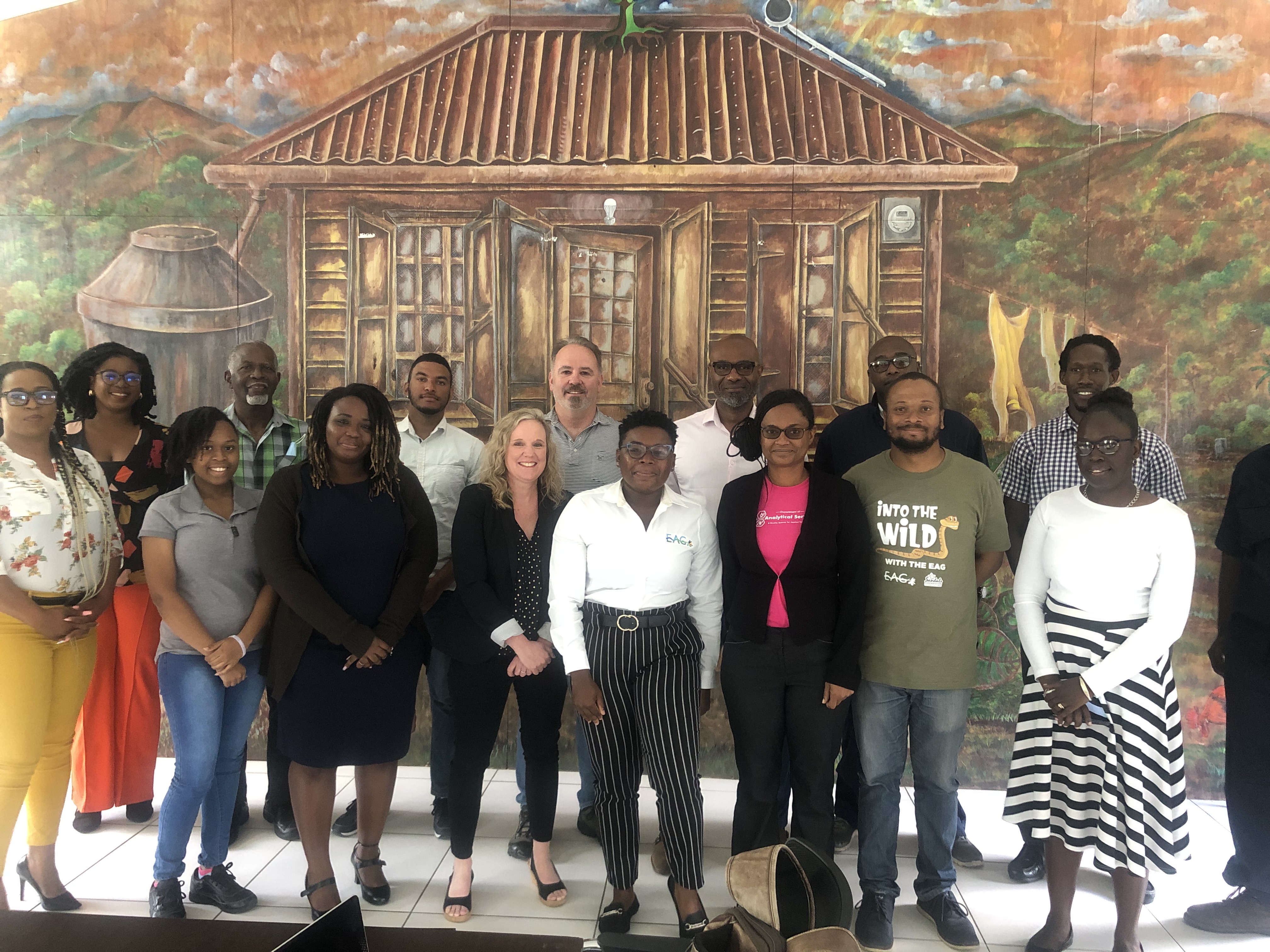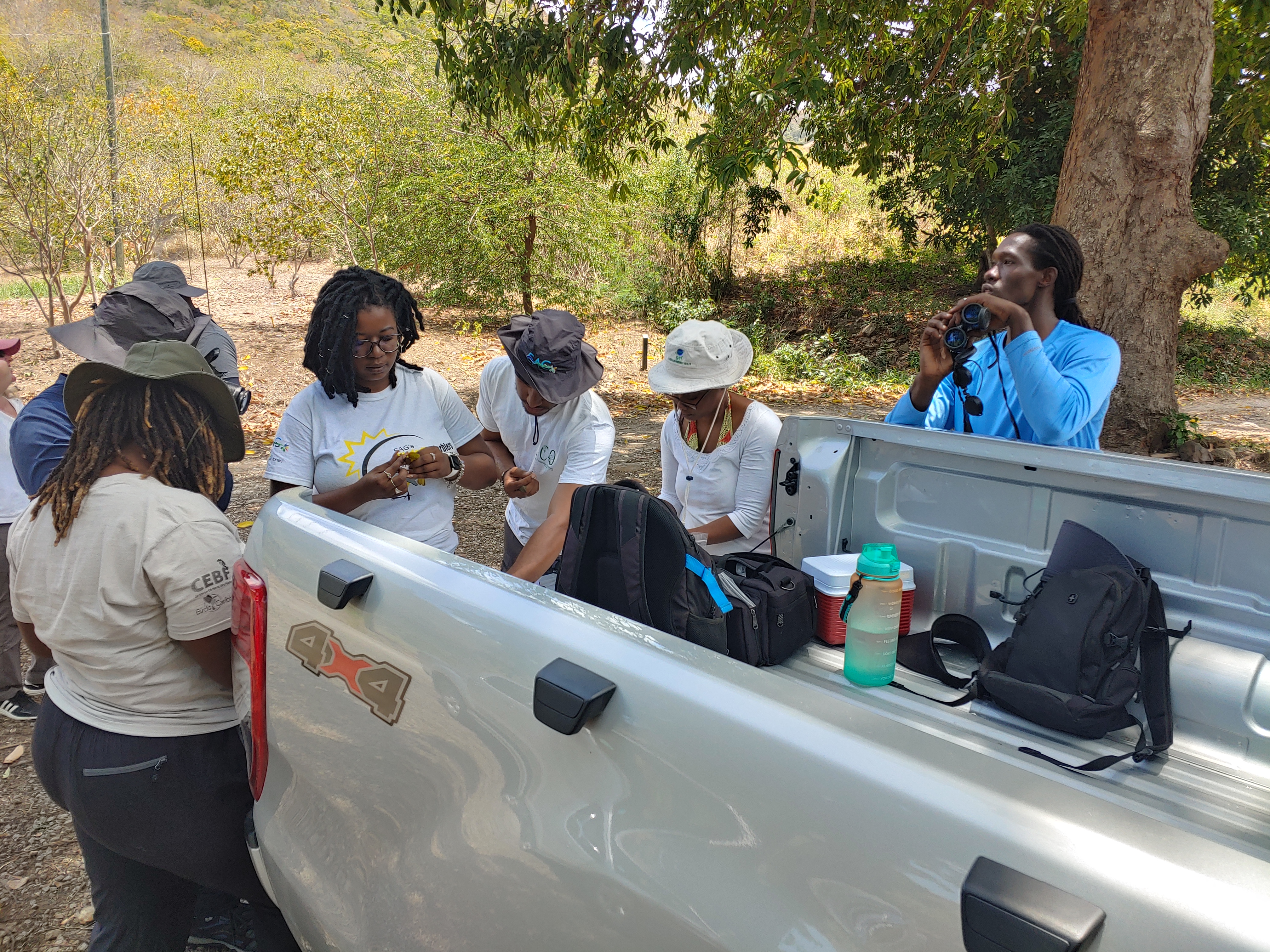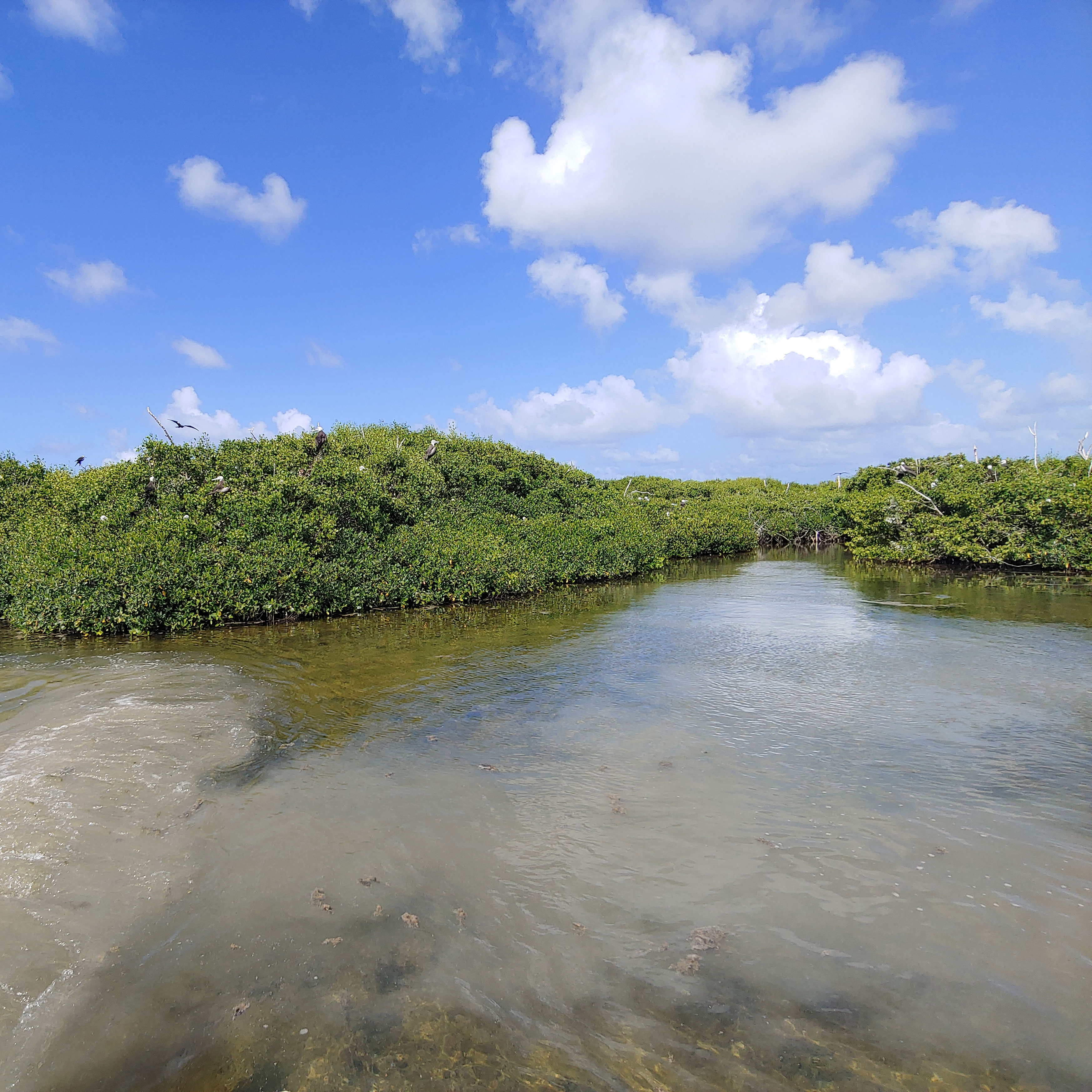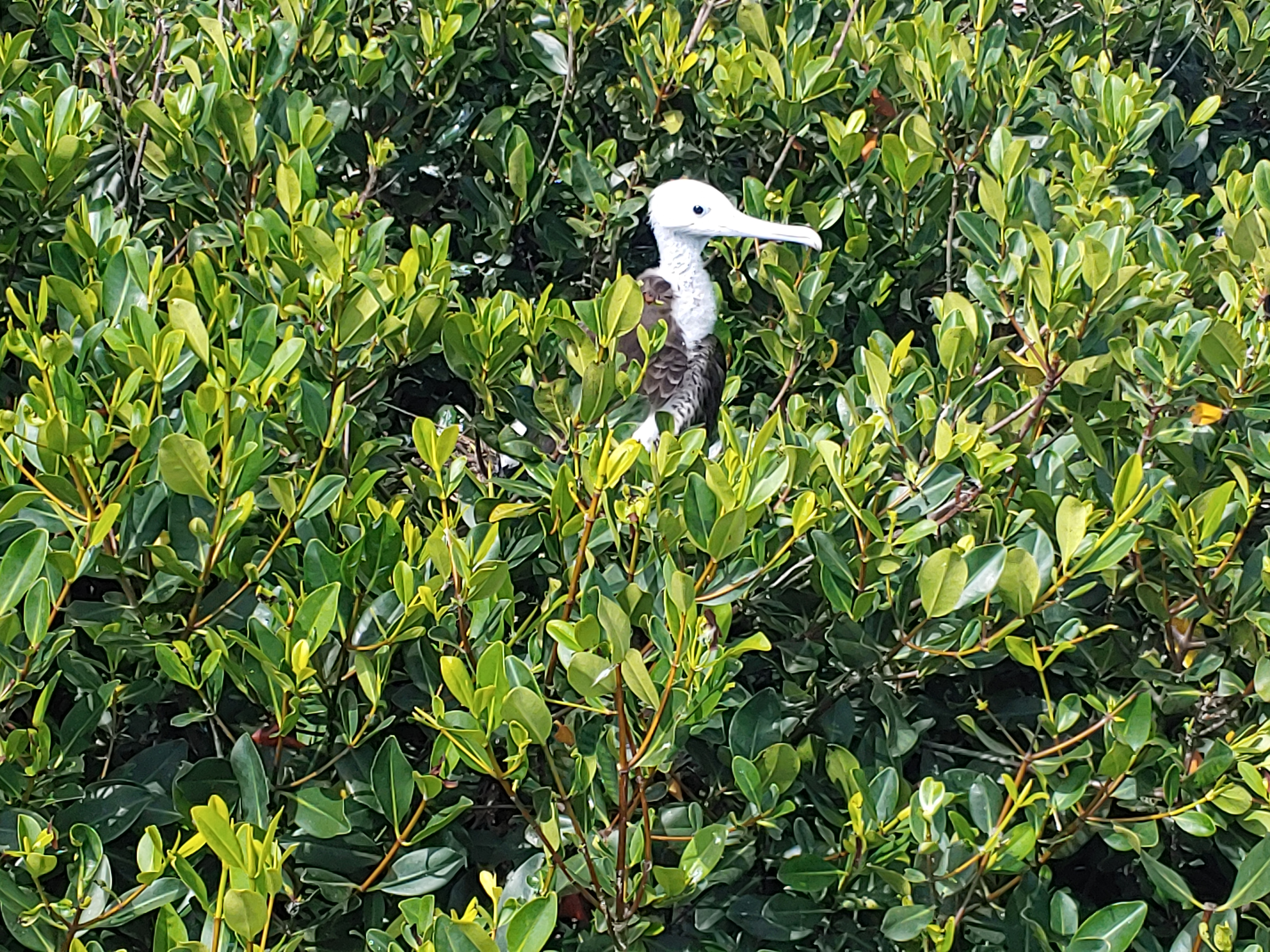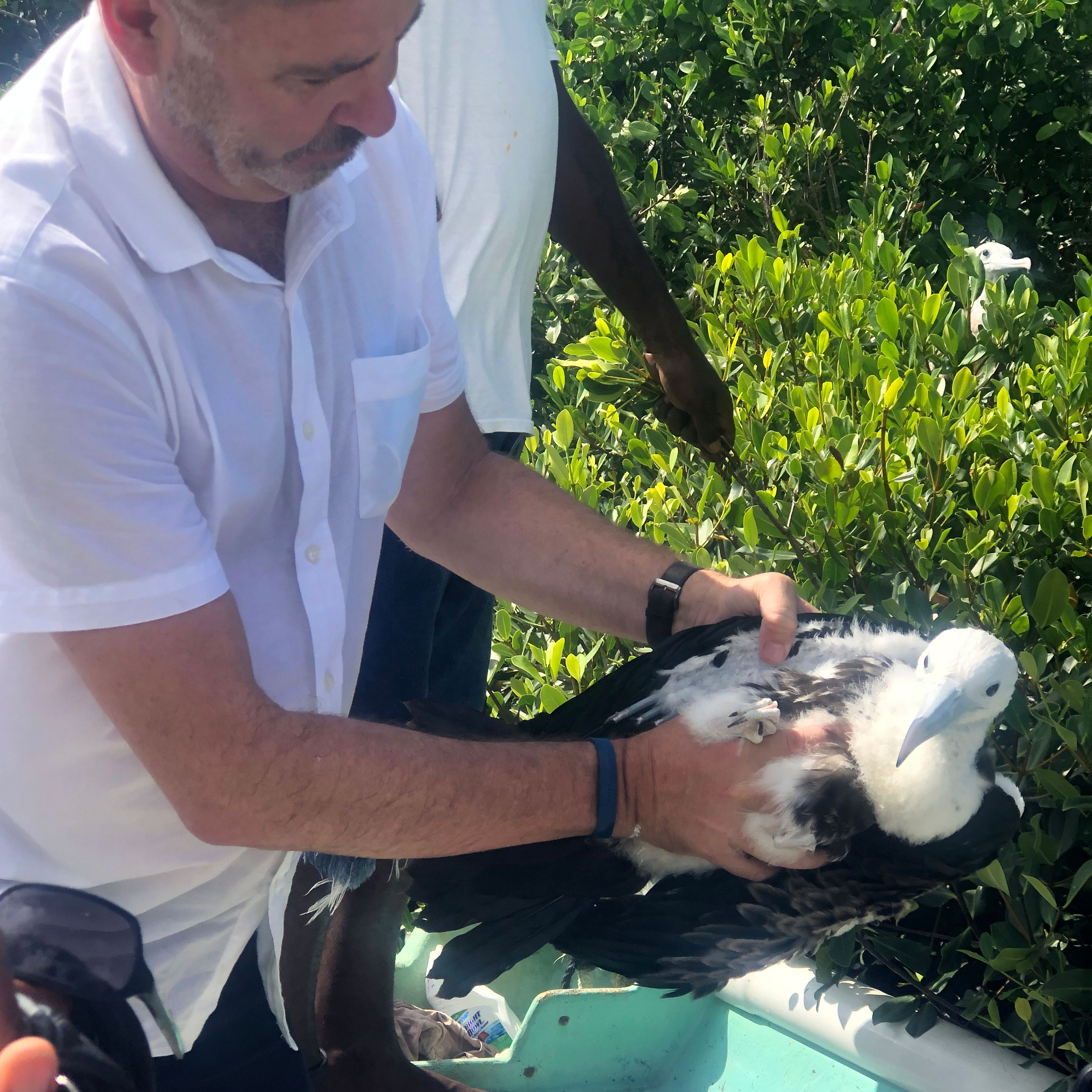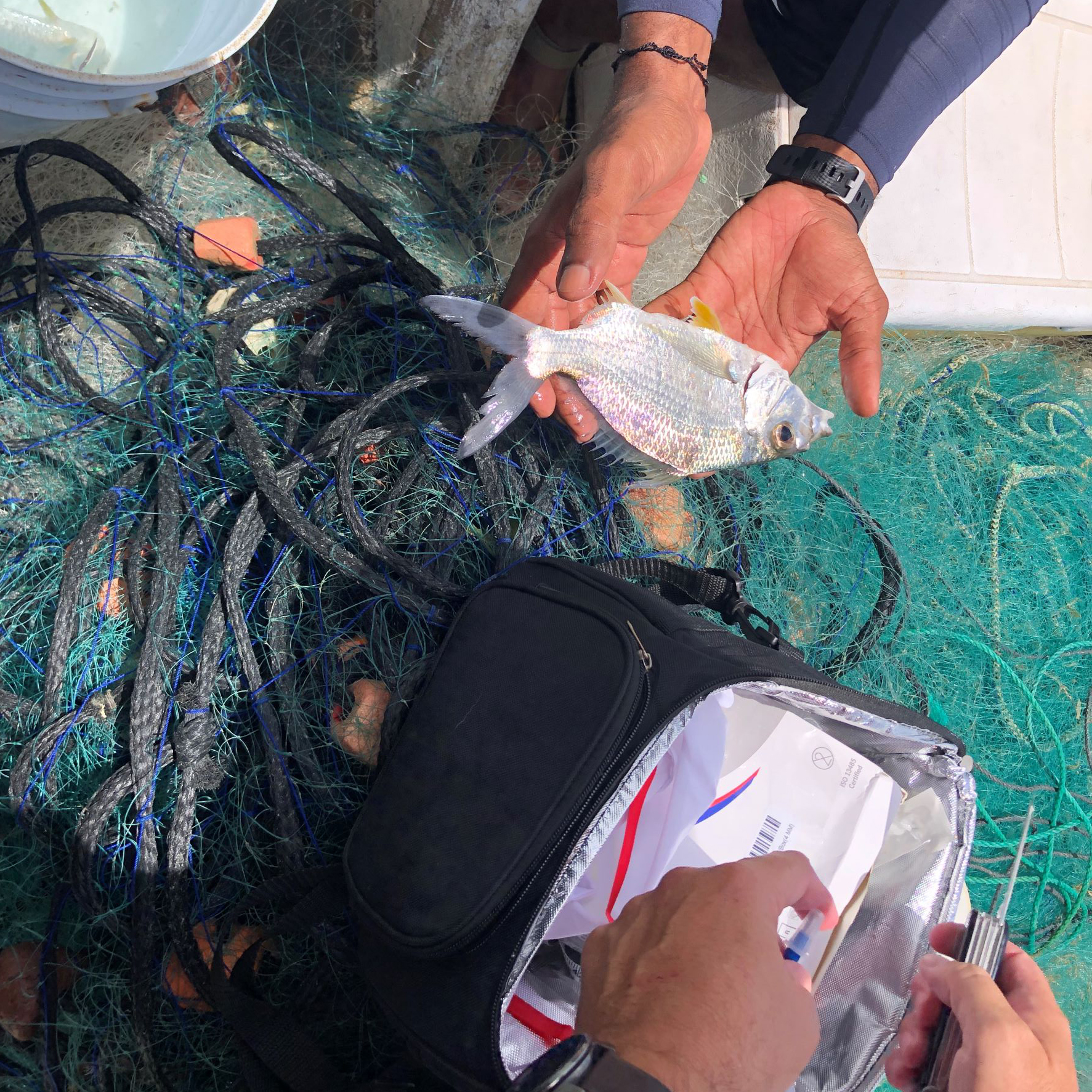Caribbean Region Mercury Monitoring Network
 The objective of this project is to establish a regional laboratory network for mercury contamination analyses to serve the Caribbean Region. Under the leadership of the government of Antigua and Barbuda, an integrated network of laboratories will be established to assist in the assessment of mercury in the environment and the food that people depend on, and to guide policies to address mercury risks.
The objective of this project is to establish a regional laboratory network for mercury contamination analyses to serve the Caribbean Region. Under the leadership of the government of Antigua and Barbuda, an integrated network of laboratories will be established to assist in the assessment of mercury in the environment and the food that people depend on, and to guide policies to address mercury risks.
To this end, workshops will be conducted to consolidate expertise within the Region and provide a forum for communication, networking, and collaboration of both laboratory directors and managers, relevant field personnel who may be collecting samples, and policymakers for Ministries related to environmental monitoring, international trade, commerce, and human health.
Learn more below:
Trip Two: Training Environmentalists and Scientists to Measure Mercury in Wildlife and Humans
Efforts to measure mercury levels in bird species found in the country’s Important Bird Areas (an official designation) began in late April 2022. The team, led by Dr. David Evers (director and chief scientist of Biodiversity Research Institute) in partnership with Dr. Linroy Christian (director of Analytical Services in Antigua and Barbuda), included members of the Forestry Division and the Environmental Awareness Group. Biologists from both the government and nonprofit groups were trained on procedures to safely catch, band, measure, and sample birds. The blood and feather samples collected do not harm the birds. Samples will be used to generate mercury concentrations.
These training efforts are intended to build capacity to improve bird capture, banding, sampling, and monitoring skills, and to establish a long-term monitoring program for mercury, and other toxic substances, in birds (and potentially bats) that can be used to assess ecological and human health.
View slide show of work in Antigua and Barbuda below:
Photo 1: Mercury Monitoring in Caribbean Birds Workshop
Photo 2: Dr. Linroy Christian assisting with training efforts in the field
Photo 3: Training procedures to safely catch, band, measure, and sample birds.
Photo 4: Environmental Assessment Group biologists assisting BRI scientist with bird handling
Photo 5: Gray Kingbird in hand
Photo 6: Environmental Assessment Group staff assisting with bird samples
Photo 7: Frigatebirds in flight
Trip One: Establishing a Primary Mercury Laboratory in Antigua and Barbuda
The Department of Analytical Services of the Ministry of Agriculture within Antigua and Barbuda is the lead administrator of this project and will serve as the primary toxicology laboratory. All project-related workshops will be held in Antigua and Barbuda and will be coordinated by the Ministry of Agriculture.
St. Kitts and Nevis, under the Bureau of Standards Multipurpose laboratory, will serve as a secondary laboratory for the region to help with future inter-lab calibration needs and to build stronger regional capacity.
BRI will assist with initial laboratory training, calibration and standards, sampling design, and workshop needs. Standardized biotic sampling across regional labs will help meet national and regional interests for mercury monitoring. This regional mercury monitoring project will also help many Caribbean countries meet the obligations of the Minamata Convention.
View slide show of work in Antigua and Barbuda below:
Photo 1: Splitting fish samples at the Department of Analytical Services’ laboratory in Antigua.
Photo 2: Mangroves in Barbuda; sensitive habitat for mercury exposure
Photo 3: Young Frigatebird in mangrove habitat
Photo 4: Sampling (blood and feathers) Frigatebird in Barbuda
Photo 5: Fish sampling (muscle tissue) in Antigua
Photo 6: Splitting fish and skin-lightening cream samples at the laboratory in Antigua.
Photo 7: Receptacle for fluorescent lightbulbs for safe handling of mercury-added products
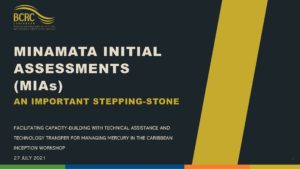
CRMMN Workshop Resources
Below, find meeting agendas as well as presentations from the Facilitating Capacity-Building for Managing Mercury in the Caribbean, Virtual Regional Inception Workshop that was hosted on July 27, 2021.
- Agenda
- PowerPoints
- Minamata Initial Assessments of Mercury: An Important Stepping Stone- Tahlia Ali Shah
- Developing the Caribbean Regional Mercury Monitoring Network- Dr. David Evers
- Central Lab Overview and Data Sharing– Dr. Linroy Christian
- Communications Strategy and Outreach Options- Molly Taylor
- Air Sampling SOP and Lab Overview– Dr. Sandy Steffen
- Caribbean Fish Mercury Summary, SOP, Sampling Design and Next Steps– Dr. David Evers
- Caribbean Bird Mercury Summary, SOP, Sampling, Design Next Steps– Dr. David Evers
- Human Hair Mercury Summary, SOP, Sampling Design Next Steps– Dr. Linroy Christian
- Cosmetic Mercury Summary, SOP, Sampling Design, Next Steps– Dr. Linroy Christian
Below, find the agenda for the Improving Awareness to Mercury-added Products: Sound Management for the Protection of Human Health workshop. Held at the Fisheries Complex in Barbuda on July 28th, 2021, this workshop provided an opportunity to discuss the CRMMN project and collect fish samples in Barbuda.

Resources and Publications
- Caribbean Mercury Monitoring Network Report
- Mercury in the Global Environment
- Local, Regional, and Global Biomonitoring: Understanding Mercury Exposure through Monitoring At-risk Species
- Global Mercury Monitoring in Biota (8-page summary)
- Phasing Out/Phasing Down Mercury-added Products: What to Know about Consumer and Commercial Products Outlined in the Minamata Convention
Photo Credits: Header photo © Diganta Rajkhowa; Trip Two Slideshow photots; Workshop; Frigatebird handling © EAG; Trip One Slideshow photos © BRI Staff

